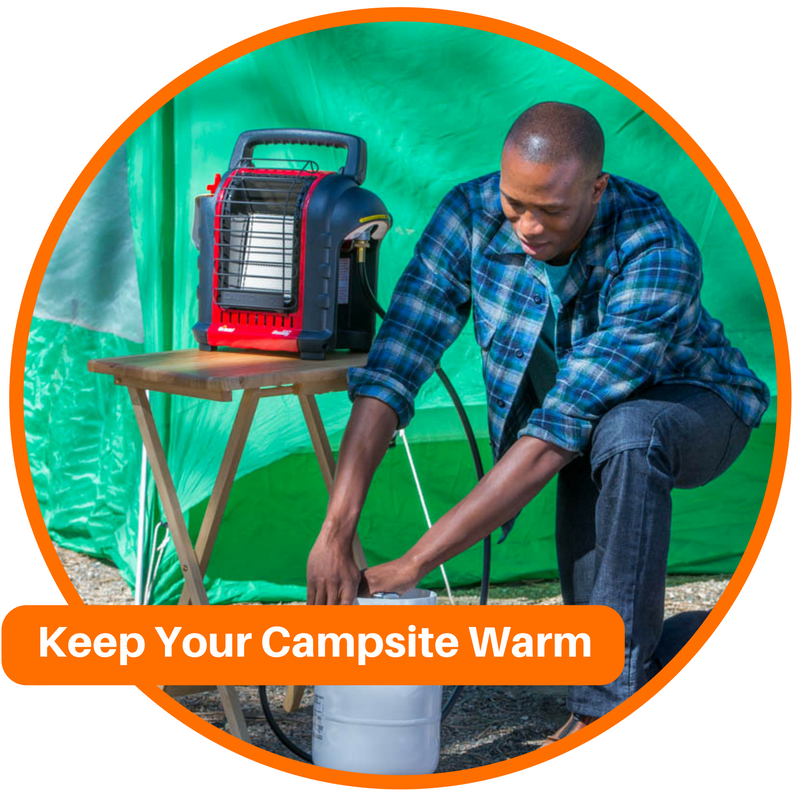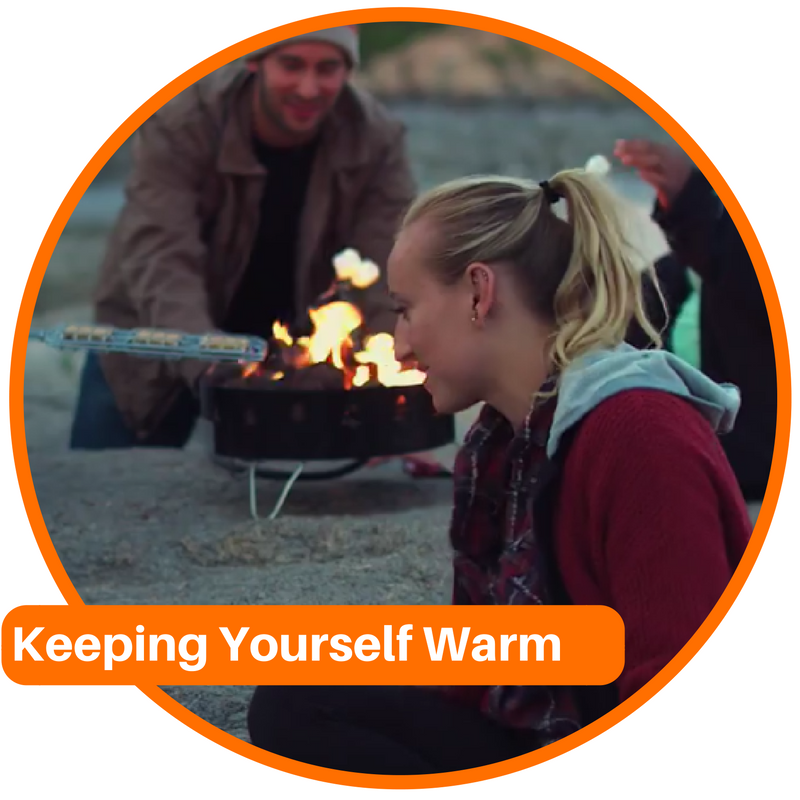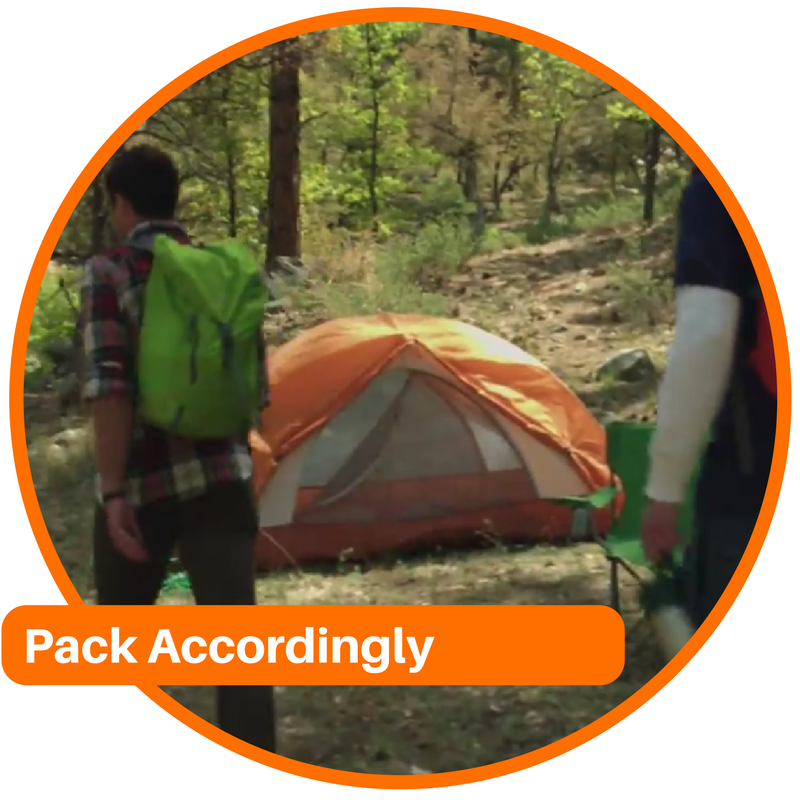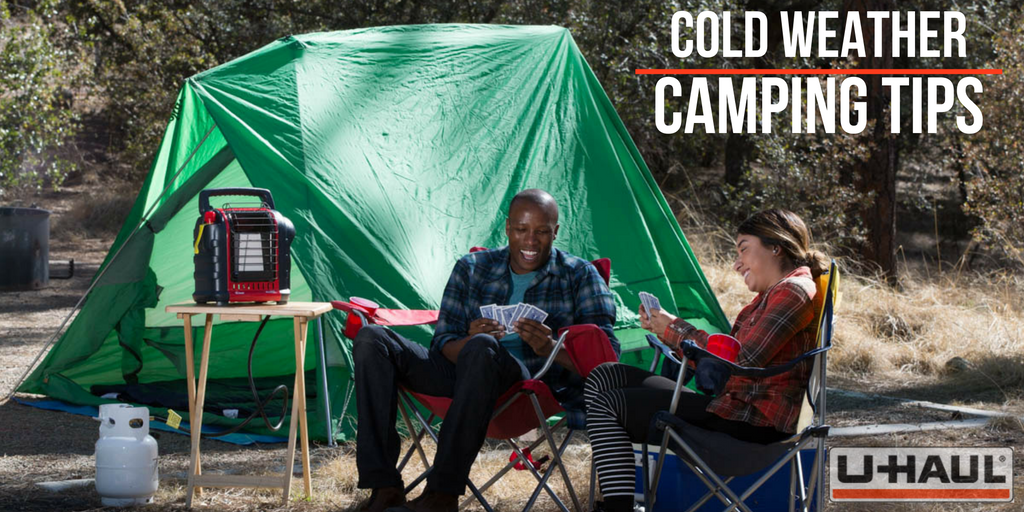As the weather starts to cool off for fall and winter, it’s time to think about how you’re going to prepare for cold weather camping. Depending on the climate of the area you are camping, this may mean changing up traditional camping plans completely and adjusting for snow or ice conditions. Here are some tips for staying warm and making the most of your cold weather camping trip:
Do Your Research
You may be visiting a campsite that you regularly travel to. Even so, this same campsite can be a vastly different experience when the temperatures lower. Make sure you know what you’re getting yourself into before you’re there.
 Choose a campsite at least a month in advance and make any needed reservations
Choose a campsite at least a month in advance and make any needed reservations- Plan your route to the campsite. This includes any driving directions and hiking paths.
- Determine where you will set up your tent. Placing it near shrubbery can help to block the wind. Do not set up camp near water.
- Check expected weather conditions when choosing your campsite, again when you pack and once more the day you leave for your trip. Snow, ice and avalanches are all real possibilities if you are camping in the winter so be prepared for them.
- Plan activities ahead of time. If you are planning on doing anything from hiking to snowboarding map out where and what day you will be doing these activities and any additional things you will need to pack for them.
Keep Your Campsite Warm While Cold Weather Camping
Your campsite is your home base essentially; it’s where you are going to be storing most of your food, water, and other belongings. If any of those things get too cold, they won’t be very helpful to you. Here are some things to remember when trying to keep your campsite warm:
- Dig a hole, about 1″-2″ deep, below your tent to help protect it from cold air.
- Lay tarp underneath your tent to protect it from any water or moisture on the ground.
- Place cardboard on the floor of your tent to help insulate heat.
- Put foam insulators or a yoga mat below your sleeping bag for extra cushion and to keep cold air from getting to your tent.
- Use a fly to cover your tent and help protect it from the wind.
- Keep vents in your tent. This sounds counterproductive, I know. Yes, it will make things slightly cooler but it will prevent moisture from building up in the tent which would make you colder in the long run.
- Keep a lantern hung at the top of your tent. This will help to prevent condensation or moisture from building up overnight.
- Pack a portable heater or fire ring. No explanation needed here — stay by the heat and warm yourself up. You can also keep the portable heater near your tent to warm it up.
- During the day when you aren’t using it, flip your sleeping bag inside out to keep it dry.
- Keep a hot water bottle in your boots and your sleeping bag at night to keep them warm. Nalgene water bottles are great for this.
- Ideally, use a mummy, hooded sleeping bag to keep in body heat.
- If you are bringing matches, pack them in metal, not plastic, as plastic can freeze over.
- Insulate propane or fuel bottles by wrapping them in duct tape. They can get very cold to the touch and give you frostbite during the winter.
Keep Yourself Warm While Cold Weather Camping
The most important thing to consider when cold weather camping is how you are going to stay warm. Hypothermia, frostbite, and dehydration are common results of underestimating the cold. Here’s what you should do to keep yourself warm:
 Keep your head, hands, and feet covered at all times. This means hats, gloves, socks, and boots.
Keep your head, hands, and feet covered at all times. This means hats, gloves, socks, and boots.- Pack 2 sets of every clothing item, even socks, for each day to ensure your clothes remain completely dry. Moisture will cool you off and has the potential to freeze.
- Dress in layers of synthetic material clothing. The synthetic material will stay drier and dressing with a bottom, mid and top layer will help to trap in body heat and allow the option to take off layers if needed. Cotton is the enemy.
- Exercise for a few minutes before bed to warm up your body.
- Pack hand warmers to keep in your gloves or your sleeping bag.
- Do not go cold weather camping alone. Having another person will help produce more heat in the tent and will help ensure your safety.
Think Smart, Eat Smart
Unlike the average camping trip, basic sandwiches won’t cut it. Of course, having some of those packed as well as safety food can’t hurt but you need meals designed to keep your calorie intake and body temperature up.
 Keep your cooking area sheltered from the wind by digging a trench, about 3′ deep.
Keep your cooking area sheltered from the wind by digging a trench, about 3′ deep.- Eat high energy meals. This means lots of carbohydrates and protein.
- Always eat hot meals. Pack a portable grill or stove to prepare your food.
- Eat a high energy snack like a protein bar before going to bed to help produce body heat.
- Make sure you are eating a least three times a day to keep your body’s energy and temperature stable.
- Drink warm drinks in thermoses or insulated cups.
- Stay hydrated. You can boil snow to produce clean drinking water for yourself.
- Keep your water bottles upside down overnight so that they freeze at the bottom, rather than the top. You can also keep water bottles in your sleeping bag at night to keep them warm.
- Do not eat with metal utensils as they will get too cold. Instead, use wooden utensils.
Pack Accordingly
It’s time to face it… you’re going to have a lot of stuff to bring with you on your upcoming camping trip. You should always pack more than you think you need when cold weather camping. As you think about how you’re going to transport all of these camping supplies with you, here are a few more key things to pack:
 If you are camping in snow, regular tent stakes won’t work. You will need special snow stakes or skewers to secure your tent.
If you are camping in snow, regular tent stakes won’t work. You will need special snow stakes or skewers to secure your tent.- Carry cash in case of any unexpected fees or emergencies.
- Pack sunscreen. Just because it’s cold doesn’t mean you can’t get burned.
- Sunglasses are another must-have, especially if there is snow present as the light will reflect off it.
- Bring a first aid kit, just in case.
- Have plenty of extra propane and batteries available to keep your devices, heaters, and appliances running.
- Don’t forget to pack all of your normal camping supplies as well.
Do you have any experience with cold weather camping? Share your advice in the comments!




